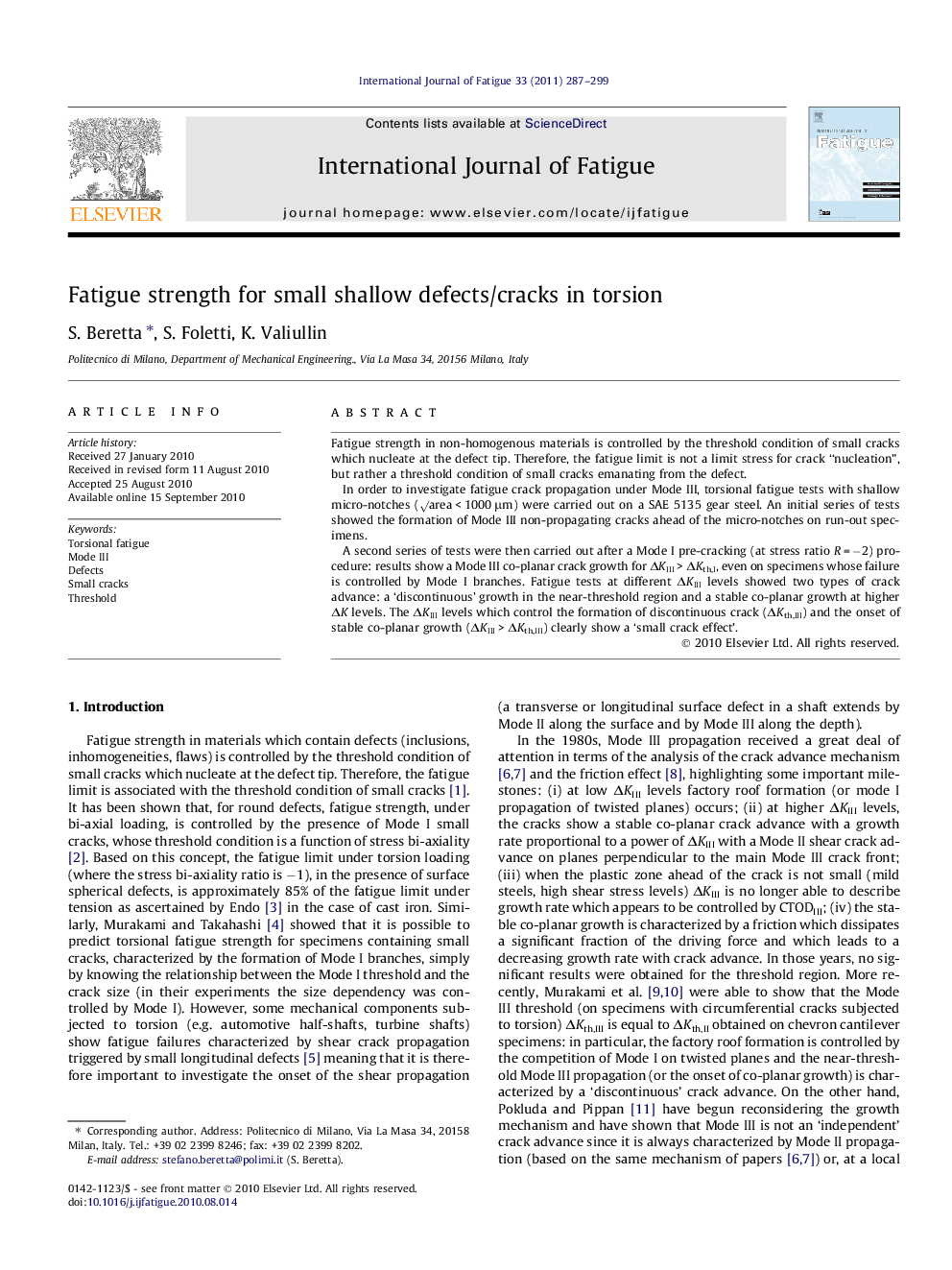| Article ID | Journal | Published Year | Pages | File Type |
|---|---|---|---|---|
| 775486 | International Journal of Fatigue | 2011 | 13 Pages |
Fatigue strength in non-homogenous materials is controlled by the threshold condition of small cracks which nucleate at the defect tip. Therefore, the fatigue limit is not a limit stress for crack “nucleation”, but rather a threshold condition of small cracks emanating from the defect.In order to investigate fatigue crack propagation under Mode III, torsional fatigue tests with shallow micro-notches (√area < 1000 μm) were carried out on a SAE 5135 gear steel. An initial series of tests showed the formation of Mode III non-propagating cracks ahead of the micro-notches on run-out specimens.A second series of tests were then carried out after a Mode I pre-cracking (at stress ratio R = −2) procedure: results show a Mode III co-planar crack growth for ΔKIII > ΔKth,I, even on specimens whose failure is controlled by Mode I branches. Fatigue tests at different ΔKIII levels showed two types of crack advance: a ‘discontinuous’ growth in the near-threshold region and a stable co-planar growth at higher ΔK levels. The ΔKIII levels which control the formation of discontinuous crack (ΔKth,III) and the onset of stable co-planar growth (ΔKIII > ΔKth,III) clearly show a ‘small crack effect’.
